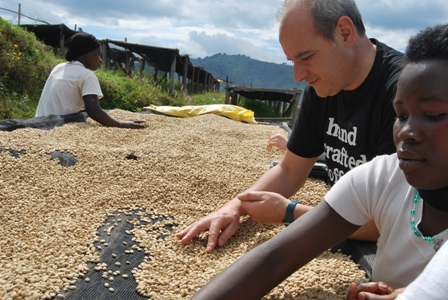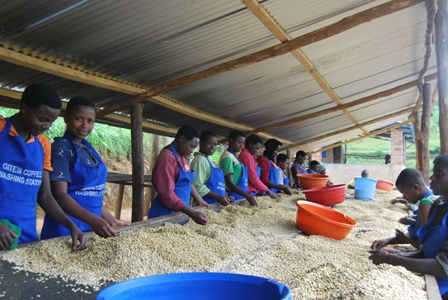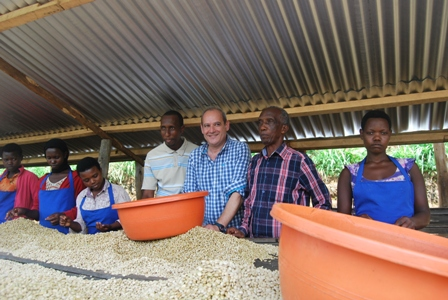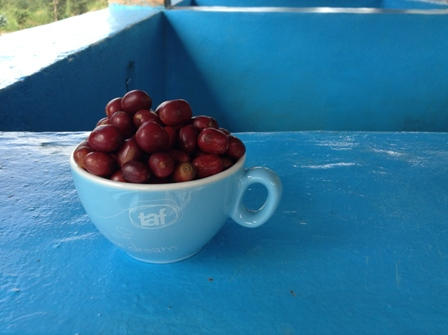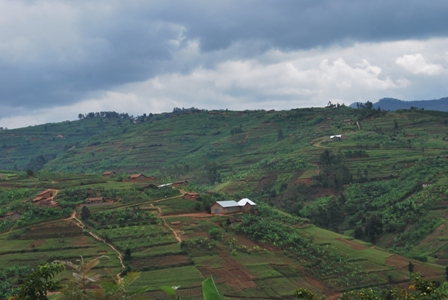
Coffee production in Rwanda started in 1904 by some German missionaries.
The Belgian colonialists called Rwanda “the country of a 1000 hills”, there are definitely more. In these fertile volcanic soils around lakes and in a altitude of 1300m up to 2200m, there are 450.000 plantations with the smaller being around 1 hectare. Planting per hectare is about 2000 – 2500 trees
Flowering starts in September-October and picking takes place from March until July. The main processing method is the washed method. The variety that grows most (95%) is bourbon and we can also find some Blue Mountain.
Taf has established cooperation with private washing stations in Rwanda since 2010. The objective of my trip this year was to meet the people who work in these private washing stations.
We had scheduled to visit the cooperatives from which we buy our coffees and to meet their people. Therefore, the second day we started with John Karuru, an agronomist and Bosco who works closely with the cooperatives and the washing stations in order to visit the Kageyo Cooperative.
The drive lasted about 3 hours. We arrived in Kageyo cooperative where we were warmly welcomed from all the people who run it. This cooperative participated in the COE Rwanda in 2011 and took the second place in the final ranking.
We were guided inside the cooperative, the washing station as well as the African beds. During our visit we discussed about the issues that concern them and the difficulties they have to deal with. We walked along the coffee plantations and saw the coffee trees, the differences between the various Arabica coffee varieties. The soil in Rwanda has a deep red color and is volcanic. The trees do not grow under shade.
People are aware that the production of high quality coffee is an important selection criterion for the buyers and that is why they focus on applying the appropriate practices, selective hand picking and the cleaning of the station, tanks and water channels.
Early in the afternoon we said goodbye to Kageyo Cooperative and we thanked all these people that take care for the high quality of green coffee on a daily basis.
The next day we started our drive to Gitesi Cooperative.
This cooperative participated in COE Rwanda in 2012 and took the first place in the final ranking. This is a private washing station administered by Gahisi Alexis and his son, who were very happy to welcome us and willing to guide us and discuss with us about their coffee. We had the opportunity to see the coffees trees and discuss about the different varieties as well as each variety’s character. Before leaving the cooperative, they committed their selves to higher coffee quality that they already produce and we thanked them warmly as they help us to keep our high taste standards.
Yiannis Taloumis


